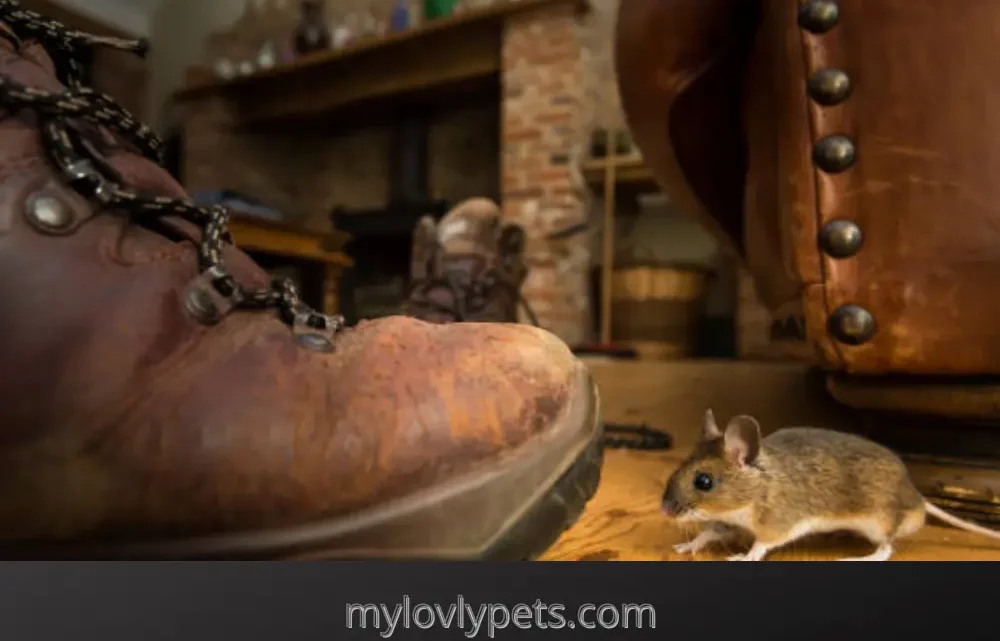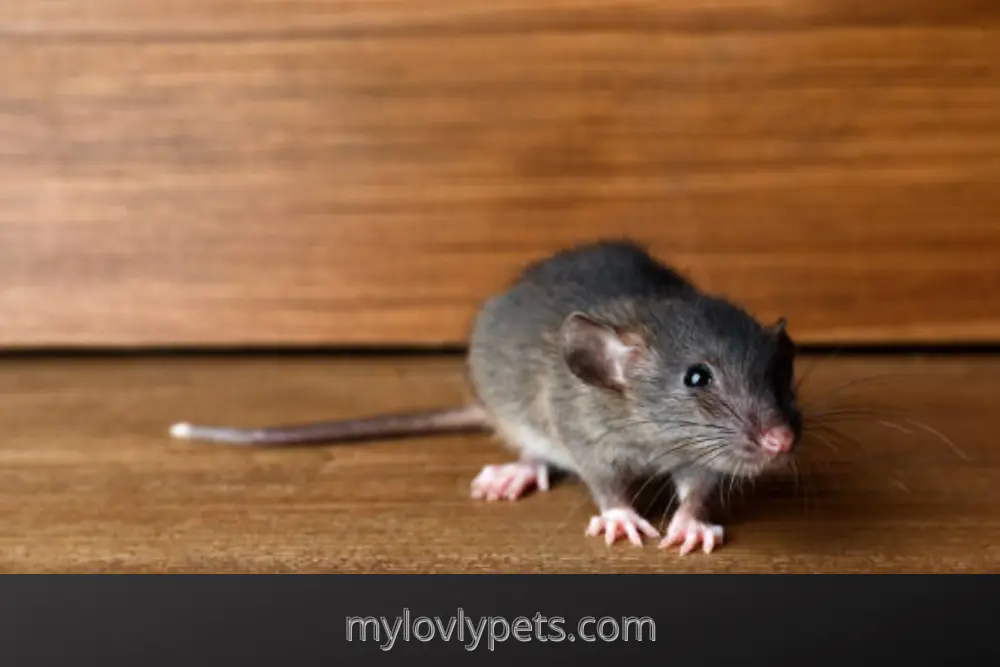
What Is The Best Home Remedy To Get Rid Of Mice?
People want to avoid discovering (or hearing) a mouse inside their homes. Mice can bring some challenges into your house: odor, mess, destruction, and sanitation difficulties.
The first and most important thing to do when dealing with mice is to positively recognize that they are mice and not some other species. If you want to learn what is the best home remedy to get rid of mice? keep on reading.
Mice are particularly tricky to distinguish from other species, like rats and bats, regarding their tracks and droppings. How do you identify a mouse infestation, and what are the most effective strategies for eliminating mice without poisoning?
Alert
All three species—mice, rats, and bats—are known to spread disease.
Make sure you have on the appropriate PPE (personal protective equipment) before beginning any work to protect yourself from potentially harmful substances, including disease-causing droppings, insulation dust, and other potential risks.
How Do Mice Look?
Mice are small, agile creatures that can easily fit through small openings and have adapted to life in confined settings. If you find a mouse in your house or yard, you should take immediate action to eliminate the pest.

Mice are tiny rodents that measure just about 7.5 inches from nose to tail when fully grown. They have skinny bodies, short legs, and long whiskers. Their snouts are often faster than their ears, and their ears are generally more prominent. Mice appear in many colors, though brown and gray are the most frequent.
The issue is Although mice and rats (especially young rats) share many physical similarities, they are treated exceptionally differently as pests. The elimination of mice and rats requires separate approaches.
Mice In the House: What Are the Signs?
When rats or mice urinate, they frequently leave an ammonia-like odor that can make the air feel stale.
Check for chew marks if you own a wooden, plastic, or electronic appliance. Mice frequently bite on objects to maintain a short set of teeth.
In their most active states, mice frequently generate noises like grinding, scratching, and squeaking.
Scuffs, stains, and trails of fur are familiar sights on the floor.
Mouse droppings can be found scattered about the floor and the walls in the form of tiny pellets.
How to Keep Mice Away Naturally?
Understandably, many house owners would like to avoid using toxic chemicals. Be aware that this isn’t always achievable when a mouse problem is serious, and forcing all-natural controls to function when they don’t could make removing mice (or rats) from your home harder.
So how to get rid of mice?
These natural ways should be tried first, but if the mice persist, it may be necessary to bring in the experts. Similarly, a reputable pest control service won’t be too quick to resort to chemical methods. They will take the time to hear you out and create a strategy that addresses your unique needs.
Cut Back on Food and Water Sources
The first step in removing mice is eliminating or severely restricting access to their food and water sources. Getting rid of mice will be challenging if you provide for their basic needs, such as food and water.
Any of the following could provide mice with food or water:
Feeders for birds
Compost or biodegrade.
Open trashcans
Fountains and Ponds
Hoses used for irrigation or other purposes,
Although it may not be possible to eliminate every possible mouse food and water source from your yard, you may significantly reduce the likelihood of mice using your garden as a refuge after dark by reducing as many as possible.
Remove Their Shelter
Mice are masters of camouflage. If they are entering your house, you should investigate possible entry points. To prevent mice from using them as shelter, you should eliminate these potential hiding spots:
Piled waste materials, such as firewood that need to be cleared out.
Stacks of pallets leaning against your walls, ivy or other plants covering your house’s base.
As the temperature drops, mice and other pests will start looking for warm places to hide, quickly making their way into your home through any openings they find. Clearing away debris and mowing the grass surrounding the house can discourage rodents and other pests from making your home their habitat. A useful guideline? Keep a space of 18 inches around your house’s base.
What Is The Best Home Remedy To Get Rid Of Mice?
What Scent Will Keep Mice Away?
Strong, intense scents like clove and peppermint oils can deter mice. Put cotton balls soaked in oils in closets, nooks, and doorways. Your mice problem might not be eliminated, but it can be managed to some degree.
How to get rid of mice with vinegar?
Due to their great sense of smell, mice are known to be repulsed by very strong smells. Vinegar may be the smell that stands out the most, especially when it is not combined with anything else. This pungent, sour odor is effective at repelling many creatures, including mice.
Everyone knows that it will be extremely difficult to completely cover your area with that mixture. In the same way, keeping your area smelling like vinegar won’t be easy. Vinegar smells bad and isn’t fun to spread throughout the house.
Spray a solution of 2/3 apple cider vinegar and 1/3 water along the room’s edges and into moist, dark nooks and crannies, in areas where mice have been sighted or are expected to dwell. Doors, flooring, counters, and cabinets are just some of the places where you should employ this technique.
Do mothballs keep mice away?
Although these fumigants were originally developed to deter moths from a given area, they may also be useful for managing rodent populations.
Even while mothballs have some naphthalene in them and can be effective as a deterrent in big doses, they aren’t effective enough to get rid of mice and other rodents.
However, if you want to get rid of mice in a specific room, you could find that mothballs do the trick. In the short term, mothballs may help you get rid of mice by driving them from their current hiding spot, but they aren’t effective enough for long-term mouse control.
Target areas that you believe mice frequent while using mothballs. Since mothballs are potentially harmful to humans, it’s better to store them in sealed containers and strategically scatter them around the house.
Put open ammonia bottles in locations
Ammonia is an elemental compound of hydrogen and nitrogen. It is a clear gas with a strong smell. You may make an effective mouse repellent by combining two cups of ammonia with a few tablespoons of detergent and a quarter of a glass of water. Put the mixture in a spray bottle and use it to treat the area around the infestation.
Mice can be fooled into thinking that ammonia is the urine of a predator because of its strong odor. They are deterred by the strong odor of ammonia and are thus less likely to return. The only negative is the unpleasant odor you’ll have to endure while waiting for the treatment to take effect.
Use steel wool to fill spaces
When mice enter your home, they will nibble through anything you’ve put in the walls, including insulation and filler. Steel wool, which is significantly more difficult to bite, can impede mice’s movement.
Tape or seal entrances/exits
A suitable sealer should be used to block off any potential entry or exit points along the room’s corners. Duct tape can also be used, though numerous layers will be necessary to keep mice from chewing through it.
Dot key areas with cat litter
The presence of a mouse’s natural predator’s indications would be an effective deterrent. If you don’t have a cat, chances are you know someone who does. Mice will immediately abandon an area if they detect the smell of their predator.
Pet a cat
Having a cat in the house is the most organic way to prevent mice from taking up residence. Not only do you not have to deal with unpleasant odors or chemicals, but you also receive a fuzzy friend in exchange! Just make sure nobody in your household is allergic to cats.
How to catch a mouse quick? Place traps
If mice have already found their way inside your home despite your best efforts to block all possible access points, traps are essential for evicting them. If you seal off a mouse’s entry once inside your home, it’ll suffocate and leave a foul odor behind as they rot.
After all the entrances have been blocked off, set traps inside. The mice will try to leave, but if they run into a trap, you’ll be able to get rid of them and any other mice that managed to sneak in despite your best efforts to block off any entry points.
Don’t set snap traps if you can’t tell if the pests, you’re dealing with are mice or rats. These snap traps come in a limited range of sizes. If you try to catch a mouse with a rat trap, or a rat with a mouse trap, you’re asking for trouble. Don’t give up if you can’t tell if you have mice or rats but take steps to prevent their admission and capture them inside.
Glue traps are a good option for dealing with rodents, but you can’t tell if they’re mice or rats. A rat glue tray may catch mice and rats of any size, albeit it’s not the kind of solution. While glue trays can hold several rats before needing to be changed, snap traps must be emptied and reset after each capture. Just make sure you have gloves on.
Mice-borne diseases
Mice are cute little animals. They are even kept as pets by some people. However, you don’t want them slithering inside your home because of the diseases they may spread. Among these are:
Inhaling dust contaminated with mouse urine and droppings can lead to respiratory and neurological illnesses. Such as hantavirus pulmonary syndrome and lymphocytic choriomeningitis.
Mice are known to visit homes nightly, and their presence is usually signaled by urine and excrement left behind. It’s so important to scrub every possible mouse hangout spot.
You should use protective gear (a mask and gloves) and wash your hands thoroughly after cleaning up an area with many droppings.
Mice bites and direct contact can spread these infections.
Leptospirosis is a bacterial disease spread through drinking water tainted with animal urine. That illness can also affect our furry friends. Your pet’s water bowl should be stored elsewhere overnight and cleaned frequently if mice are a problem in your home.
Although everybody, regardless of age, is susceptible to the bacterial infection known as salmonellosis, young children (those under the age of 5) are at increased risk. The disease spreads in the excrement of mice.
Fleas and mites found on mice can transmit many diseases, including the plague, typhoid fever, and smallpox (all of which are caused by Rickettsia). Although some of these diseases can be treated, prevention is always preferable. This includes staying away from mice and their droppings.
Bottom line
Mice can spread infections, so take action right away. Because of their rapid reproduction, an invasion becomes increasingly difficult to contain the longer it is allowed to progress. Make your home mouse-free as quickly as possible by setting traps and using deterrents.
Removing mice might take anywhere from a day to a few weeks. It depends on how bad of an infestation you’re dealing with. To reduce any health issues, it is essential to sanitize all surfaces the mice could use to climb on while you are trapping them.


